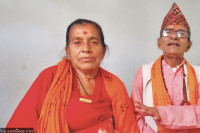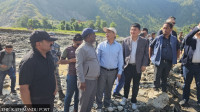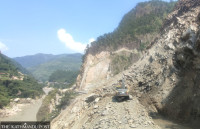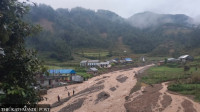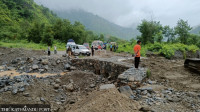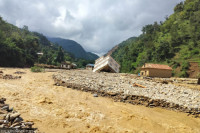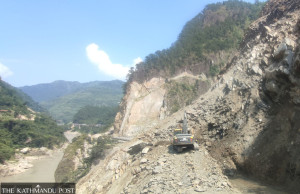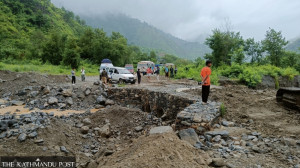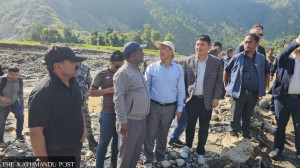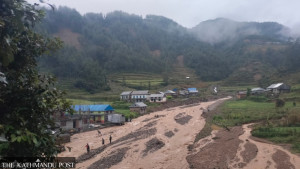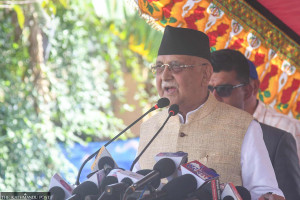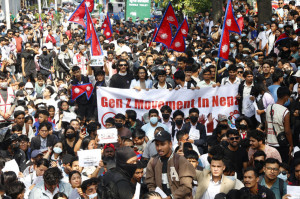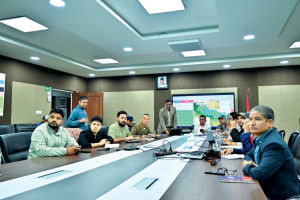Bagmati Province
Makwanpur’s Chepangs, still sustaining on root fruits, await a harsh winter
A majority of the Chepangs still subsist on root vegetables that they collect from the forests.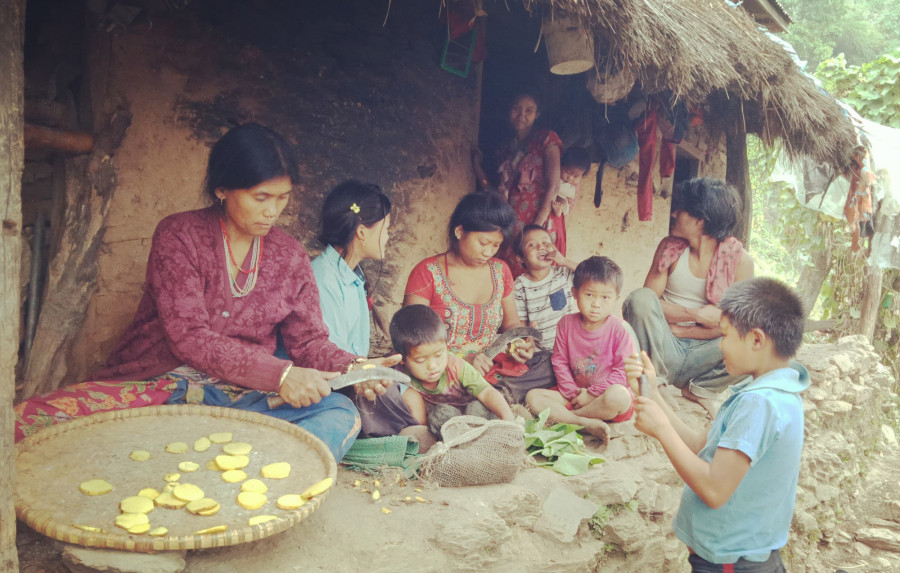
Pratap Bista
Despite major political changes in the country over the decades, there’s been little that has changed for the indigenous, semi-nomadic Chepang communities in Makwanpur. A majority of the Chepangs still subsist on root vegetables that they collect from the forests. And for the lack of a decent habitat, they are compelled to endure the biting cold that winter brings.
Makwanpur, the hilly district that shares its border with the Capital, has the second-highest population of Chepang people, with around 19,000 people, out of about 70,000 across the country, according to 2011 census.
Dhirang at Raksirang Rural Municipality in the district’s western belt is a predominantly Chepang settlement. Chepangs here have to depend on root vegetables for nine months a year, according to Bhim Bahadur Chepang, a local.
These days, there’s not a single grain of corn in his house, says Bhim Bahadur, a father of 11. “The corn shortage started with the end of Tihar, the festival,” he said. “On good days when we get work, we exchange flour with our wage.” From a day’s work, Bhim Bahadur says he earns up to Rs200.
Bhim Bahadur’s son, 20-year-old Shyam, is conscious that this is not enough wage and that their labour is being exploited. “If we ignore the work we are offered, we risk not getting work again,” he said. “So we are compelled to work however much the wage may be.”
On bad days, however, Bhim Bahadur’s family enters the wild in hunt of fruits and vegetables. “We eat geetha and bhyakur (the most popular and accessible wild vegetables) mostly,” Bhim Bahadur said in his mother-tongue. Bhim Bahadur has a sizeable family—18 in total, including his grandchildren—all of whom live in a low-ceiling, thatched house made of mud and bamboo; one has to stoop a bit to enter it. There’s a single room for all the members to sleep in.
“Traditionally, we don’t have rooms in our house,” said Bhim Bahadur. “During winter, we burn the firewood in the fireplace at the centre and all of us sleep around it. During summer, however, we have the liberty to sleep wherever we want—outside or in.” Binumaya, Bhim Bahadur’s wife, chimed in, while she was peeling the layers of geetha. “We are poor people,” she said. Binumaya was married when she was 12; at 14, she gave birth to her first child, a girl who died of cholera when she was five months old.
The family doesn’t own a single acre of land anywhere; they don’t have a land ownership certificate for the house, either.
Neither does Ram Kumar Chepang, another local whose family took shelter in Shankhare cave after the earthquake brought down his house. About a year ago, his family moved in to a new house, constructed in support from local media persons. But his family too struggles for food. “This is what we eat,” he said, pointing to a small mound of root vegetables. “This is what God has provided us. Without it, we would die.”
A remote corner of remote Makwanpur, Dhirang doesn’t have access to motorable road. To reach Dhirang, one has to walk for about nine hours from Lothar, in the east-west highway. Many Chepangs here grow crops like millet and maize in the rugged land around the forest. But the produce hardly lasts three months, Ram Kumar said. “There’s not a single family that can produce enough crops for three months,” said Babulal Tamang, principal of Dhirang Basic School. “All of them depend on root vegetables.” The school wouldn’t see a single Chepang child since a while back, but that has changed since the school provides lunch for free, sponsored by an NGO.
Dhirang has about 100 Chepang households, while Raksirang, the rural municipality, has about 1,500 households. “Most of the Chepangs in Raksirang reel under a food crisis,” said Raj Kumar Malla, chair of the rural municipality. “It’s hard to help them improve their lifestyle because they prefer to live around the forests.” Malla added that the rural municipality, however, has plans to construct roads, and provide skill-based training.
But Gobinda Ram Chepang, a former lawmaker, said that local units have failed to come up with measures to improve the lifestyle of Chepang people. “The local units don’t have any programme that could possibly improve the lives of Chepangs,” he said.




 18.12°C Kathmandu
18.12°C Kathmandu
